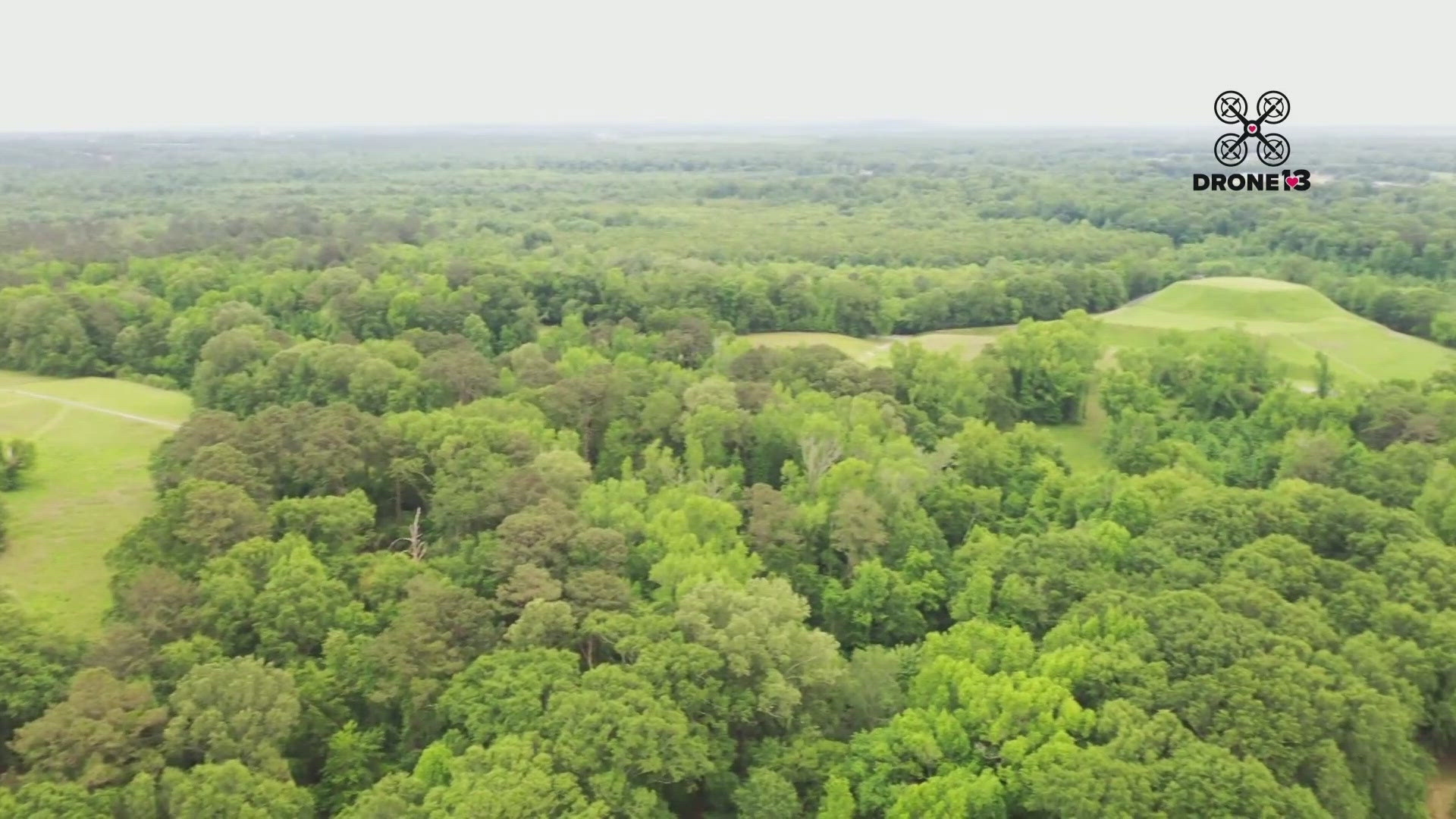MACON, Ga. — The Peach State is on the verge of making history with its potential first National Park and Preserve.
The Ocmulgee Mounds National Park and Preserve Act is making its way through Congress, with the Senate holding a second hearing on the bill Tuesday since it was filed in April.
If passed, the bill would rename and expand the current Ocmulgee Mounds National Historical Park.
Although originally proposed to cover 120,000 acres, the plan has been significantly scaled back. The initial April filing reduced the proposed size to 25,000 acres, and the current amendment further reduced it to 6,000 acres—an expansion from its current 3,300 acres.
The park lands are deeply rooted in Native American history. For thousands of years, they were home to the Muscogee Creek Nation.
The mounds within the park are among the oldest indigenous earthworks in North America and tell the story of one of the longest periods of human habitation at any single site in the National Park System.
“This place preserves, protects, and interprets evidence of an incredible long history,” said Robin Barker, interpretive manager for the historical park.
A central goal of the bill is to formalize co-management of the park between the federal government and the Muscogee Nation.
Currently, the park consults with 12 Native American tribes on ongoing and upcoming projects.
“We consult and let them know about ongoing projects to get their input,” Barker explained, emphasizing the importance of collaboration.
The Muscogee Nation already owns 126 acres of tribal land, and the bill would place this land in trust, granting the tribe jurisdiction over it.
The proposed act also includes establishing an advisory council composed of representatives from the National Park Service, the Muscogee Nation, and other government agencies.
Notably, the bill clarifies that military activities, such as overflights, would not be restricted as long as they do not interfere with park management.
Barker stressed the importance of preserving Native American history while educating the public about its ongoing relevance. “This history is not only in the past but very much exists in the present and will continue in the future,” he said.
The bill still faces hurdles, requiring approval from both the Senate and the House before reaching the president’s desk. With the current congressional session nearing its end, time is of the essence. If the bill fails to pass this year, it will expire and need to be refiled next year.
If successful, Georgia will finally join the ranks of states with a National Park.

